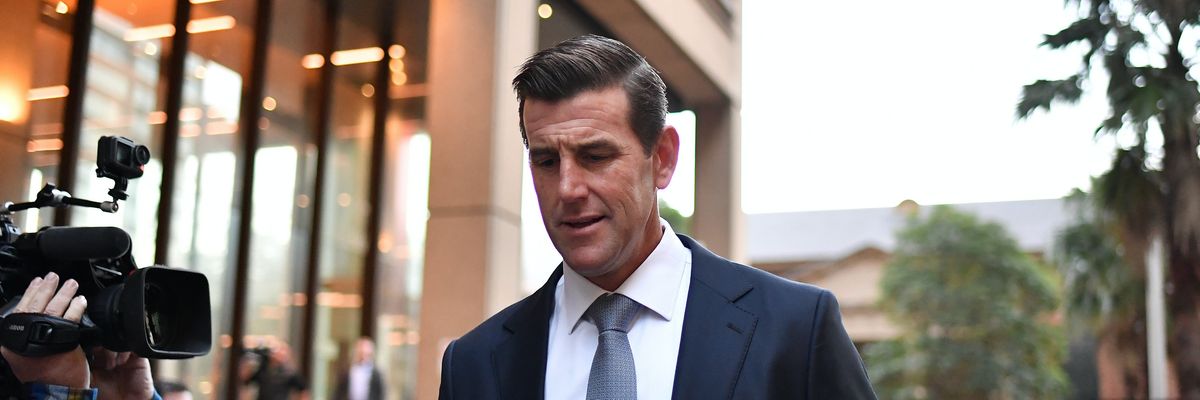An Australian federal judge on Thursday ruled in favor of three newspapers sued for defamation by the country's most decorated living soldier, who the court found committed war crimes in Afghanistan, including the murder of civilians and unarmed prisoners.
Following harrowing testimony from fellow soldiers, Afghan civilians, and others, Justice Anthony Besanko of the Federal Court of Australia ruled that Fairfax Media newspapers The Age, The Sydney Morning Herald, and The Canberra Times had "established the substantial truth" that former Special Air Service Regiment [SASR] Cpl. Ben Roberts-Smith is a war criminal who murdered four unarmed prisoners in Afghanistan.
Roberts-Smith—whose multimillion-dollar defense was bankrolled by billionaire Australian media mogul Kerry Stokes—is a recipient of the Victoria Cross for Australia, the nation's highest military honor, as well as other awards including the Medal for Gallantry and Commendation for Distinguished Service. He fought in the U.S.-led wars in Afghanistan and Iraq.
"Today is a day of justice. It's a day of justice for those brave men of the SAS who stood up and told the truth about who Ben Roberts-Smith is: a war criminal, a bully, and a liar," Sydney Morning Herald and The Age journalist Nick McKenzie—a defendant in the suit—said following the ruling. "Today is a day of some small justice for the Afghan victims of Ben Roberts-Smith."
Besanko found that in 2012 Roberts-Smith marched a handcuffed civilian prisoner named Ali Jan to a cliff in the southern village of Darwan and kicked him off the edge. Jan survived but was severely injured; Roberts-Smith ordered a subordinate soldier to execute the man.
"Ali Jan was a father, Ali Jan was a husband. He has children who no longer have a father. He was a wife who no longer has a husband," McKenzie said.
While Roberts-Smith argued Jan was a suspected Taliban scout, Besanko wrote that the soldier "murdered an unarmed and defenseless Afghan civilian," that he "broke the moral and legal rules of military engagement and is therefore a criminal," and that he "disgraced his country Australia and the Australian army by his conduct as a member of the SASR in Afghanistan."
In 2009, Roberts-Smith is alleged to have pressured a newly deployed soldier to execute an elderly Afghan man found hiding in a tunnel in order to "blood the rookie," according to the court. Roberts-Smith machine-gunned the man's younger disabled companion to death and then used his prosthetic leg as a novelty beer-drinking vessel, an act the court called "callous and inhumane."
Besanko also found that Roberts-Smith bullied a fellow soldier, while finding that the papers did not prove an allegation that he punched a woman with whom he was having an affair in the face after a 2018 argument in Canberra.
University of Sydney professor David Rolph, a defamation law expert, told the Herald that the court's judgment "is a comprehensive victory for the media outlets" and "a vindication of the journalism in question."
"Defamation losses have a chilling effect for the media, particularly for serious investigative journalism," he added. "This decision should give media outlets some confidence that they can undertake public-interest journalism and prevail."
Sen. David Shoebridge (Green-New South Wales) called Besanko's ruling "an important win for fearless journalism in the public interest."
"It's a tragic fact that private media companies, not any part of the federal government, have taken on the public task of telling the truth about Australia's war record in Afghanistan," Shoebridge told the Herald. "The official silence must now end."
In 2017, the Australian Broadcasting Corporation obtained leaked documents—known as the Afghan Files—detailing SASR war crimes such as the murder of unarmed civilians including children. A subsequent parliamentary probe confirmed the commission of war crimes by Australian troops in Afghanistan between 2005 and 2016.
On Wednesday, Reutersreported Australian defense chief Gen. Angus Campbell was warned by the United States—which has a long history of war crimes in Afghanistan and other countries invaded or attacked during the open-ended War on Terror—that allegations of SAS atrocities could trigger the Leahy Law, which prohibits military assistance to countries that violate human rights with impunity.
Troops from other coalition forces—including Afghans, British, Germans, Polish, and Canadians—have committed or been complicit in atrocities during the Afghan war, as have Taliban, al-Qaeda, and Islamic State fighters.
